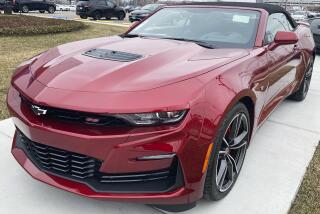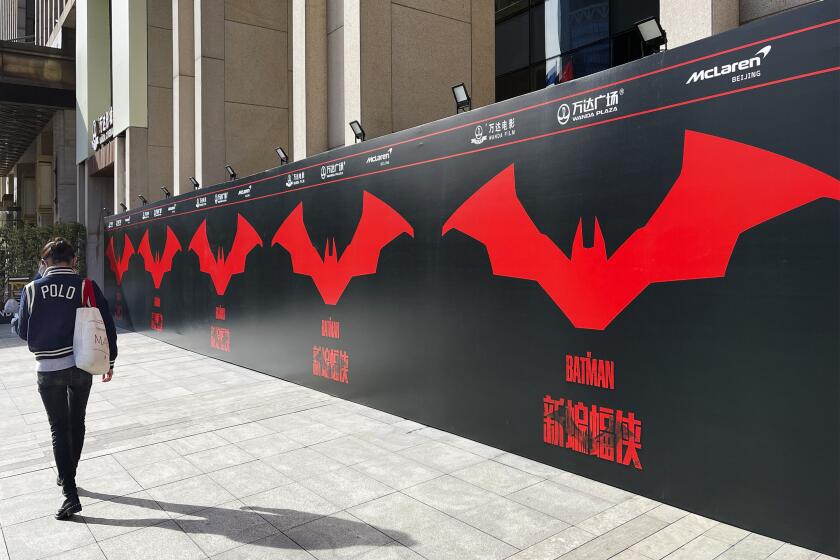Car Theft Rings Are Hot Stuff in Japan
- Share via
TOKYO — From a gas station attendant, the gangsters got access to the keys. From a couple of Russians, they got a connection to perhaps the world’s biggest market for stolen Japanese cars.
Before they were busted a few months ago, the gang in northern Japan simply drove away with more than 100 sought-after sport-utility vehicles using duplicate keys made by the crooked pump jockey.
Their final destination: the Russian far east.
Alliances between Japan’s criminal syndicates and their foreign counterparts have long troubled authorities here. Now they have even more reason to worry--stolen cars smuggled out of Japan are showing up everywhere from London to Lagos.
After remaining flat for most of the decade, the number of cars reported stolen in Japan jumped 20% in 1999 and 30% more in 2000, when a record 56,205 vehicles were reported missing. Thefts for the first half of 2001 were up 23% from a year earlier.
“I see the numbers getting worse,” said Sachio Kuroya, an official at the National Police Agency that specializes in larceny cases. “These people are organized and they have international connections.”
Thieves target Toyota Land Cruisers and Mitsubishi Pajeros--vehicles popular in developing nations where roads are rough--and Japanese luxury sedans with a high resale value.
The best customers are Russian gangsters based on Sakhalin Island and other remote regions near Japan’s northern tip.
But Russians are not the only ones interested in the illicit car trade. Police have broken up auto theft rings involving Pakistanis, Sri Lankans and Burmese.
Authorities believe Asian brokers give the Japanese mob access to black markets in the Middle East. From there, the cars make their way to Europe and other parts of the world.
In Britain, where Japanese right-hand-drive models are easiest to sell--a trade group recently estimated that at least 1,000 stolen vehicles, most of them Japanese, arrive every year via Dubai in the Persian Gulf.
Records of cars seized last year by Japanese customs officials show that some were headed as far as Nigeria in West Africa.
Authorities say they’re cooperating more with their foreign counterparts through Interpol. They’re also using roadside cameras that monitor the license plates of passing cars and drive-through X-ray machines that let customs officials peek inside shipping containers.
But nobody’s talking about stopping the traffic--only slowing it.
“It’s impossible to check every car that comes through here,” said Setsu Sato, a customs inspector in the port of Yokohama. “We have to rely on intuition and random inspections.”
Police don’t publish comprehensive figures on theft losses, but the problem is clearly growing.
Insurance payouts to owners of stolen cars reached $443.6 million last year, 17 times the bill a decade ago, according to the Marine and Fire Insurance Assn. of Japan.
Japan’s 88,000 mobsters, known as yakuza, have dealt with Chinese gangs for years, most prominently in trafficking guns, drugs and prostitutes. More recently, they’ve been caught operating burglary rings together.
But analysts describe the car racket as a particularly attractive deal for the yakuza and their foreign allies, and predict the ties created now will lead to alliances in other kinds of crime.
“They’re trading a guaranteed supply of cars for a guaranteed market,” said Atsushi Mizoguchi, an expert on the Japanese underworld. “I can see more sophisticated rackets in the future,” such as using the Internet.
The Japanese government unwittingly made smuggling cars easier six year ago when it eased inspection and documentation requirements for exporters of used vehicles.
But stealing cars has never been that hard.
Few people in big Japanese cities have garages, and many cars lack basic anti-theft equipment. Hot-wiring is not a required skill--about 40% of cars taken have had the keys left in them. During the summer, thieves hang around convenience stores waiting for customers who drive up and leave their engines running to keep the air conditioning on.
“The myth of Japan as a crime-free nation is an enduring one,” said Naoto Nakayama, an insurance association official.
More to Read
Sign up for Essential California
The most important California stories and recommendations in your inbox every morning.
You may occasionally receive promotional content from the Los Angeles Times.










